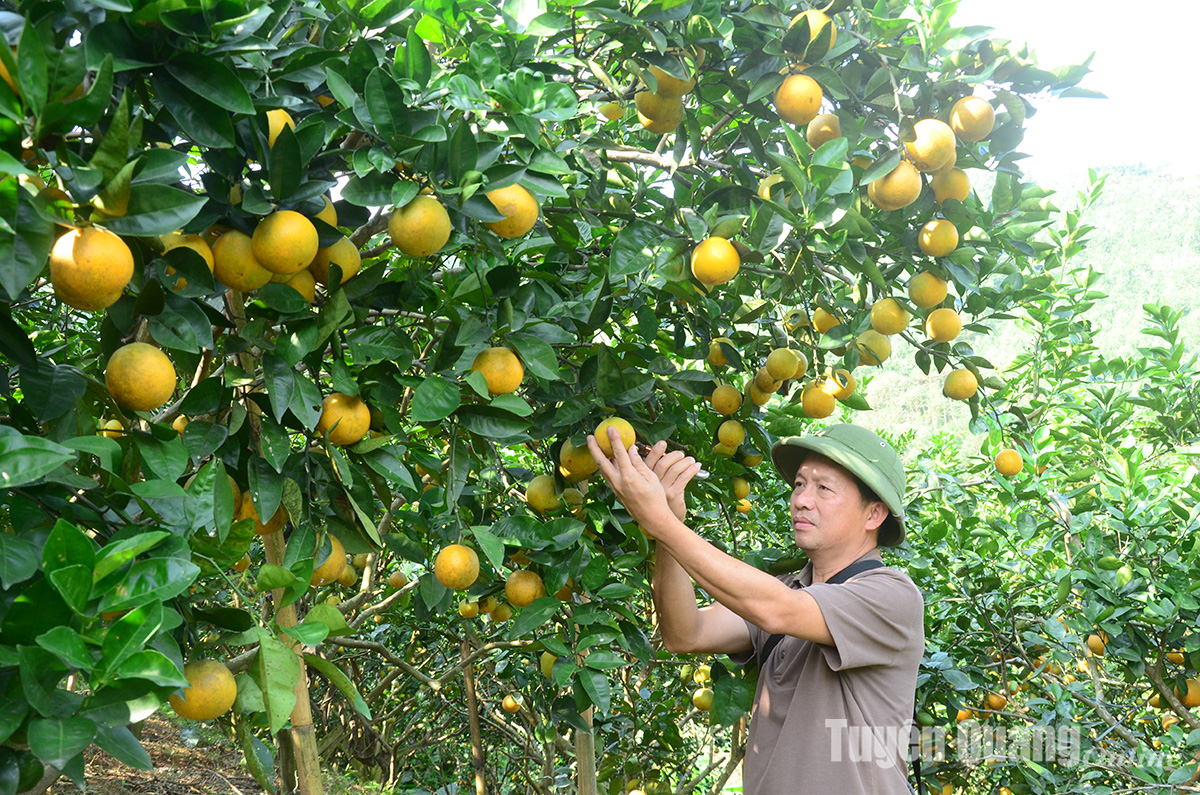
Tuan is taking care of his orange garden.
On average, each orange tree has 2 to 5 weaver ant nests. Mr. Tuan said, weaver ants live in groups and make nests in trees by using their own larval silk to roll leaves together. Yellow ants are an extremely beneficial natural enemy in the garden.
Not only does it have the ability to control and destroy insects harmful to plants, but it also helps increase the sweetness of oranges. For the past 5 years, his family's orange garden has not had to spray pesticides once.
“In the past, orange gardens were often damaged by aphids, leafhoppers, stink bugs, and stem borers. However, now we raise weaver ants, so all kinds of insects are destroyed. This measure not only brings great efficiency in terms of quality, but also reduces the cost of pesticides. I find it very effective," he said.
To protect the ecosystem and develop sustainable agriculture, he is willing to support and impart his experience in growing organic plants for free to those in need.
According to Mr. Tuan's calculations, his orange garden has 600 fruit-producing trees, and his family is estimated to collect nearly 20 tons of fruit. Currently, every week his family cuts from 200 to 500kg. His family’s products are mainly consumed in market.
In 2020, Tuan's family's orange garden was certified by the Ministry of Agriculture and Rural Development with PGS certification.

Comment
Print